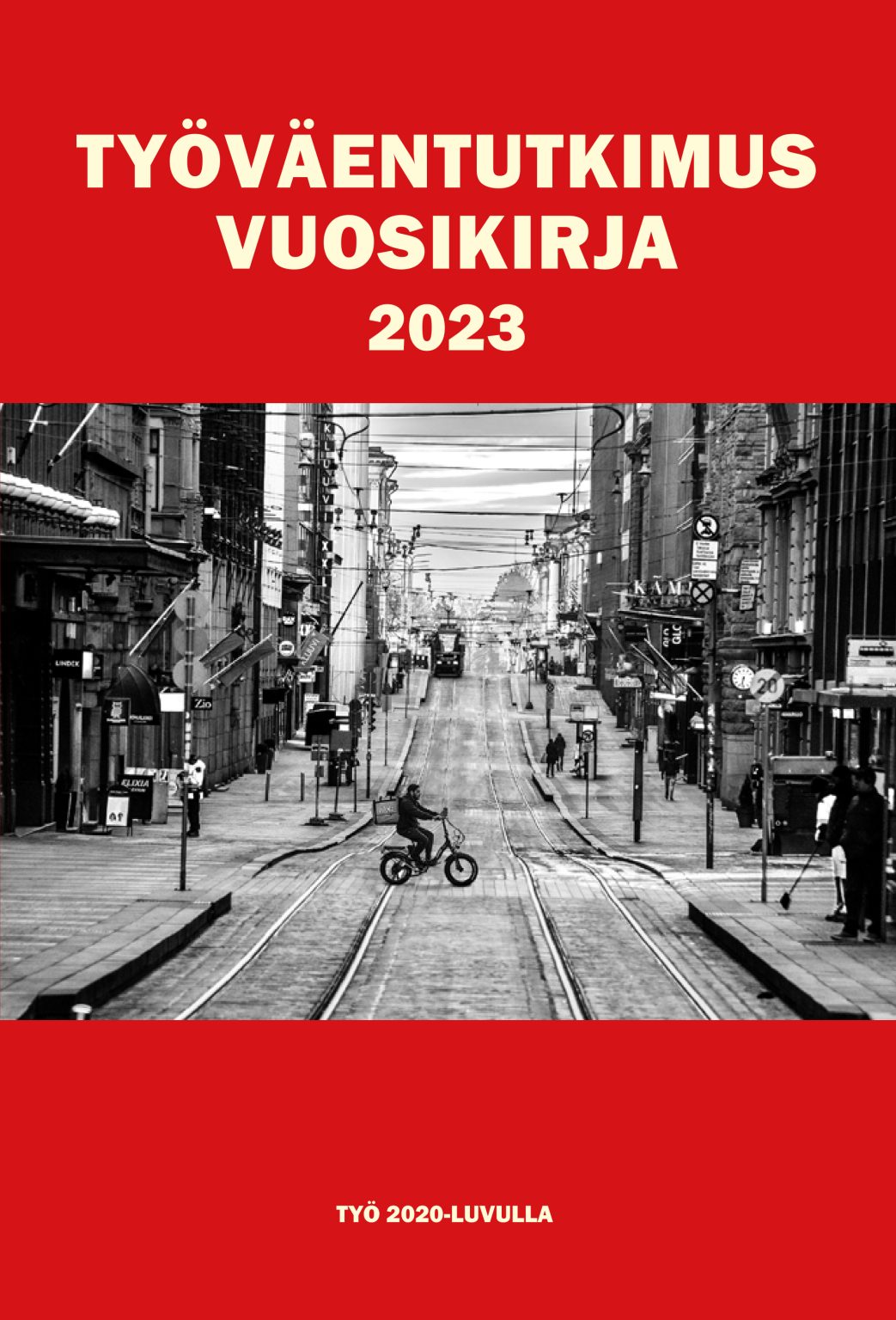"Eipä tästä käteen jää juuri yhtään mitään, kun toisesta päästä leikataan heti"
Työssäkäyvien köyhien kokemuksia prekaarista työstä ja sosiaaliturvasta 2000-luvun Suomessa
DOI:
https://doi.org/10.37456/tvt.131469Keywords:
työntekijät [http://www.yso.fi/onto/yso/p1075], köyhyys [http://www.yso.fi/onto/yso/p3476], sosiaaliturva [http://www.yso.fi/onto/yso/p3285], 2000-lukuAbstract
The phenomenon of in-work poverty has been considered a marginal phenomenon in a prosperous post-industrial welfare state like Finland. In welfare states, poverty is relative and mainly concerns households whose members are not involved in working life. However, in this article, we estimate that around 200,000 people in Finland live in a situation where their salary or entrepreneurial income is not enough to cross the poverty line. In addition to their insufficient income, some need social security and some work multiple jobs simultaneously. The increase in the number of the working poor is a result of the increase in precarious jobs and various socio-political reforms, especially related to social security.
In the article, we analyze the experiences of the working poor with precarious work and social security by using qualitative narratives (417 writings). We show how and why irregular and insecure employment contracts cause irregular and insufficient earnings. Precarious and low-paid work does not always lead to less, but also to more work than normal. We also highlight how combining social security with precarious work is often perceived as difficult and humiliating, even though social security is an important part of earnings for the working poor.
Cuts to social security for working people can cause incentive traps and unfair situations for people who are working, looking for work and educating themselves despite insufficient earnings.

Downloads
Published
How to Cite
Issue
Section
License
Copyright (c) 2023 The Finnish Labour Studies Yearbook

This work is licensed under a Creative Commons Attribution-NonCommercial-NoDerivatives 4.0 International License.





